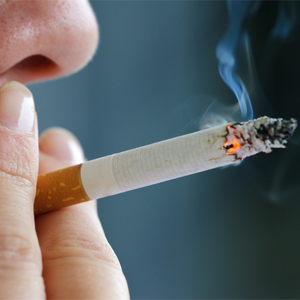
Here's yet another downside to cigarette smoking: Treatment for blood vessel abnormalities in the lungs is less likely to be successful if patients are smokers, a new study finds.
These abnormal connections between arteries and veins in the lung are called pulmonary arteriovenous malformations (PAVMs). They're associated with an inherited disorder called hereditary haemorrhagic telangiectasia, the study authors explained.
Highly effective procedure
"Smoking cessation is very important if these patients want to help themselves and avoid further procedures," said senior author Dr Sanjay Misra, an interventional radiologist at the Mayo Clinic in Rochester, Minnesota. "We should urge current smokers to stop smoking before treatment."
The findings were published in the journal Radiology.
Misra explained that when the lung abnormalities become symptomatic, "we are asked to embolise them using coils".
Embolisation involves using a catheter to insert a small coil to block the PAVM. The procedure is highly effective, but PAVMs persist in some patients.
In this study, Misra and his colleagues assessed how smoking affects PAVM persistence. It included 103 patients with hereditary haemorrhagic telangiectasia who underwent embolisation for a total of 373 PAVMs.
The five-year persistence rate was 26% in patients who were smokers at the time of the procedure, compared with 13% in non-smokers.
Smoking creates an inflammatory response
PAVM persistence occurred in more than a third of smokers with more than 20 pack years, compared with 12.2% of non-smokers. Pack years is a measure of how long and how much a person has smoked.
"Smoking more than 20 pack years was associated with a five-fold increase in PAVM recurrence," Misra said in a journal news release.
Previous research has linked smoking with inflammation and abnormalities in the formation of new blood vessels.
"Smoking creates an inflammatory response," Misra said. "More inflammation creates a greater likelihood of failure for smokers compared to those who never smoked."
If these findings are confirmed in larger studies, the researchers believe better advice can be given to patients with hereditary haemorrhagic telangiectasia who are considering embolisation for PAVMs.
Image credit: iStock




 Publications
Publications
 Partners
Partners















